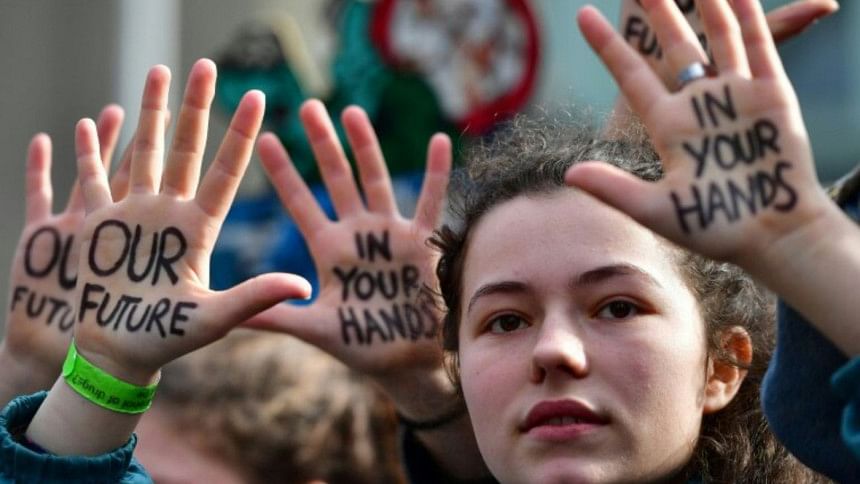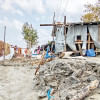How children are educating adults on climate change

Over the last two decades or more, the global scientific community has been raising the alarm about climate change, through the reports of the Intergovernmental Panel on Climate Change (IPCC) which were then considered by the governments of the world at the annual Conference of Parties (COP) under the United Nations Framework Convention on Climate Change (UNFCCC). A landmark agreement, the Paris Agreement, was reached at COP21 in Paris in 2015.
However, even though the agreement was a major achievement, it does not go far enough and the actions being taken by the governments are far from adequate to keep global temperature rise below 2 degrees Celsius, let alone 1.5 degrees, which is what is needed.
One of the reasons for this lack of ambition is that some countries tied to interests of fossil fuels companies, such as the US and Saudi Arabia, insist on blocking ambitious targets and actions. As decisions have to be arrived by consensus, this effectively prevents any significant progress.
In the last year or so, a new actor has emerged that may topple this built-in bias in favour of minimal action. It began when a 16-year-old Swedish teenager, Greta Thunberg, decided to go on a strike outside the Swedish parliament every Friday to protest the lack of action in the face of climate change. While she was initially ridiculed, she stuck to her guns and soon started attracting support both within and outside Sweden—inspiring teenagers in other countries.
She became a celebrity and was invited to address COP24 in Katowice, Poland last December where she gave a very powerful speech blaming the adults for failing to take action to tackle climate change, risking leaving behind an uninhabitable planet for our children.
Since then the movement of schoolchildren has spread over a hundred countries. These children demonstrate every Friday, and last Friday (March 15), several million children and teenagers went on demonstrations in over 2,000 cities around the world, including in Bangladesh.
The main argument of these youngsters is that the science of the problem as well as the solutions are already very clear but the adults of the world, in all countries, are failing to act with sufficient urgency.
The kids have declared climate change to be a global emergency requiring extraordinary efforts, which are completely lacking so far.
An interesting development has been the strong support the kids are getting from the global scientific community and also from many of their parents as well as their teachers.
Even the UN Secretary General Antonio Guterres has called for a climate summit in New York in September where he will only invite those leaders from governments, provinces, cities, companies and NGOs who are already taking action to discuss how to accelerate those actions. The climate change deniers will definitely not be invited!
This new framing of the climate change issue as a global emergency has several new elements to it.
The first is that it has presented the problem as one of adults (who failed to take action) versus their children (who will inherit the problem). This is a very powerful means of galvanising support from the parents of those children. While there are still many sceptics and critics, the children are beginning to win the argument.
Another aspect of this new re-framing is the shift in focus to the many solutions that are available and indeed being applied by different actors all around the world. Many of these solutions have additional benefits that can help address other global problems related to air and water, poverty, inequality, injustice, nutrition and human health so that a new pathway to improved livelihoods—which are not dependent on burning fossil fuels—has begun to emerge.
This is not to say that there are no hurdles anymore, but the tide has certainly turned against the climate change deniers all over the world.
A good example of this is the growing popularity of the Green New Deal in the United States which is being driven by young people, including new young Congress members and, for the first time, tackling climate change seems to be becoming a major political issue in domestic US politics.
It will of course take sustained efforts for the children's movement to actually achieve results. And Greta has already been nominated for the Nobel Peace Prize and her following around the world is now in the many millions. We should all listen to her and our own children and treat climate change as the global emergency that it truly is.
Dr Saleemul Huq is Director, International Centre for Climate Change and Development, Independent University, Bangladesh.
Email: [email protected]










Comments